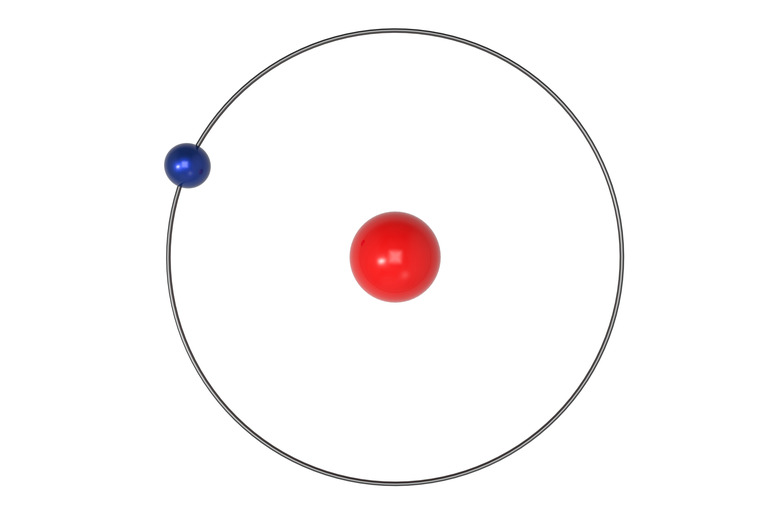Characteristics Of Hydrogen Bonding
Hydrogen bonding is a term in chemistry for the intermolecular forces caused by a strong attraction between portions of slightly charged molecules. It occurs when molecules contain atoms that, due to their size, exert a greater pull on the covalent bonds in the molecule, resulting in the shared electrons orbiting them more than the atom they are bonded to. This unequal electron share causes the molecule to have a positive section and a corresponding negative section.
The Facts
The Facts
Hydrogen bonding is a form of weak attractive force between molecules that contain an electric charge. It is caused by electrostatic attraction and can alter the chemical properties of the molecules, including raising the melting point. The force is stronger than a simple dipole-to-dipole force but is weaker than full ionic bonding.
Small Electric Charges
Small Electric Charges
Hydrogen bonding occurs where two or more molecules each have a small electric charge on them, called a "dipole," which translates as "two poles." The molecules will be more negatively charged in one section and more positively charged in another. This results in small forces of electromagnetic attraction being felt by the oppositely charged portions of neighboring molecules.
Strength
Strength
Although hydrogen bonds are considered a weak attractive force, they are the strongest weak bonds (also known as "Van der Waal's forces") by far. As a result, hydrogen bonding is weaker only than ionic bonding. Because hydrogen bonds are so strong, the melting and boiling points of the molecules that are bonded by it are increased.
Water
Water
Water is strongly affected by hydrogen bonding. Because the hydrogen bonds attract water molecules to one another, water is more tightly packed in liquid form than in solid form, where the molecules are held further apart in a lattice. Water's tightly packed liquid structure also alters its boiling point sufficiently so that solid, liquid and gaseous water can exist at the same temperature; this is known as the "triple point."
Cite This Article
MLA
Kohl, April. "Characteristics Of Hydrogen Bonding" sciencing.com, https://www.sciencing.com/characteristics-hydrogen-bonding-8448253/. 13 March 2018.
APA
Kohl, April. (2018, March 13). Characteristics Of Hydrogen Bonding. sciencing.com. Retrieved from https://www.sciencing.com/characteristics-hydrogen-bonding-8448253/
Chicago
Kohl, April. Characteristics Of Hydrogen Bonding last modified March 24, 2022. https://www.sciencing.com/characteristics-hydrogen-bonding-8448253/
